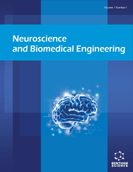Abstract
Background: Like in many other developing countries, Rwanda's medical needs outgrew its medical resources. Rural areas are the most commonly found with a huge burden of diseases, yet with low resources, including a limited number of skilled medical workers and lack of infrastructure. Community Healthcare workers (CHWs) had been introduced to supplement the health care system, but they need more support to be able to function efficiently.
Methods: We have developed and tested an affordable remote diagnosing system, based on an Arduino micro-controller connected to various health care sensors, to assist CHWs in rural areas of Rwanda. The system can collect and display the vital signs of a patient through an Android application and transmit the data via mobile wireless technologies. We have used open—source frameworks, to make the system widely available for adoption and further development. Results: We have tested a prototype of our system in Rwanda. We have verified that the system can be used by CHWs to obtain a limited number of vital signs from rural patients, that could be used to generate alerts and deliver healthcare-related educational content. Conclusion: We believe that our system is capable to assist CHWs in better decision making, and has the potential to contribute to the improvement of the health care system in rural Rwanda.Keywords: Diagnosing, arduino, sensors, open-source, affordable, vital signs, android, wireless.
Graphical Abstract
 5
5

